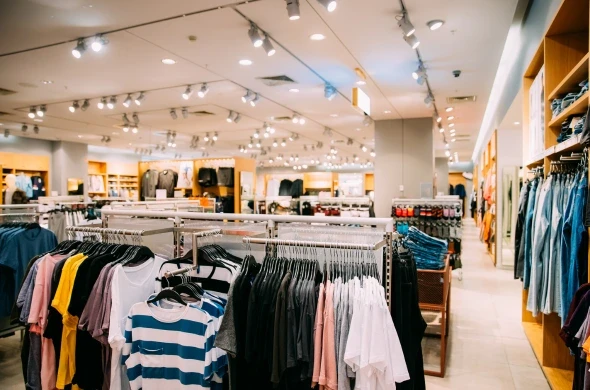The Retail Industry in the MENA region is undergoing tremendous changes as retailers had to innovate their business models and customer experiences. Prior to the Covid-19 pandemic, brick & mortar retailers dominated the market traditionally, occupying 96% market share in 2019, however and in line with Covid-19 in 2020, e-commerce has been experiencing a steep surge. For instance, in the United Arab Emirates (UAE) Amazon had to increase its staff by about 30% in 2020, whereas various other previously traditional retailers with no online presence are entering the online distribution channel and adopting e-marketing models. E-commerce is expected to grow by at least USD 4 Billion in Saudi Arabia and UAE during 2020 and 2021.
While e-commerce has found a unique space in the MENA retail sector in 2020, its effect was dramatically felt in the traditional brick & mortar retail space. A drop in tourism, job losses, subdued demand, and possibly a circumstantial recession due to the onset of Covid-19 created major challenges for these retailers, especially in the first half of 2020. Even in countries where Covid-19 was managed reasonably well, with minimal lockdown and control on the spread of the pandemic, the drop in travel and tourism has dealt a significant blow to the retail industry. On the other hand, the decline in oil prices also affected the economic stability of the oil-rich GCC and overall MENA countries.
The true potential of digital models has been tested thoroughly during this pandemic. The players that can leverage the deep stack of technology solutions are the ones able to stay afloat and sustain competitive advantages to survive and thrive. Mobile payments, omnichannel penetration, use of analytics (both social media and otherwise), artificial intelligence (AI), and other engaging and immersive technologies are helping market leaders and disruptors stay competitive and in touch with customers while serving "on-demand". As a result, business outcomes have been better for tech-enabled retailers.
Omnichannel retail approach to maximize customer experience and market penetration
As the Covid-19 pandemic continues without the curve flattening, retailers are expected to try out new service propositions, such as live streaming, omnichannel solutions, service at doorstep, and various other such models. These models are already being applied successfully in areas such as home decor and home improvement retail. Retail spending also took a hit during Ramadan in 2020. Traditionally, the month of Ramadan is generally preceded by an active shopping season, owing to cultural aspects. However, in the current year, this shopping experience was hindered by the ongoing pandemic. As people spend more time at home, categories, such as consumer electronics and appliances, fitness goods, fast-moving consumer goods, and groceries, are expected to perform strongly during the rest of 2020 and early 2021. For instance, Carrefour, an international modern trade chain, saw a 300% increase in online orders around the lockdown period. This trend is being echoed by specialist online aggregators, such as El Grocer, which has seen a 500% increase in shoppers, order frequency, and basket size across the UAE. With more than 90% of consumers shifting to online purchases in UAE and Saudi Arabia during the peak of the pandemic, the e-groceries segment has become the most attractive category.
As the region emerges from this crisis, many malls and retailers will be forced to search for new strategies to boost footfall and improve leisure time within their facilities. For instance, Dubai Mall is in partnership with Noon to offer a virtual shopping mall aimed at the same consumers that would usually visit their physical stores, and Ikea has come up with the "click & collect" option, where the customer can shop online and pick it up from one of the collection points available nearby instead of going all the way to the big store.
IKEA Click & Collect Pick Up during Covid-19 pandemic
The organized retail industry in Saudi Arabia is diverse and competitive, with quite a few prominent companies. According to the General Authority for Small and Medium Enterprises "Monshaat", which is pushing traditional stores to apply technical solutions and electronic payments (to develop the retail industry, which in turn expected to generate one million new jobs), the organized retail sector is one of the essential areas of interest to the public and private sectors, as Saudi Arabia aims to convert 80% of its stores into modern stores in line with vision 2030. The consumers in Saudi Arabia prefer to have a comprehensive and integrated shopping experience; in line with that, the shopping centers are on the threshold of a new phase, transforming into integrated destinations for shopping and family entertainment.
As the market returns to normal, the retail industry is expected to be one of the fastest-growing industries. However, there might be a decline in buyers’ confidence that can continue for some time, affecting sales to some extent. The gap between traditional and modern retail is decreasing as buyers are combining both during their buying experiences. Moreover, the conventional retail industry in the region needs to adopt the latest marketing techniques and employ multiple and comprehensive sales channels to compete with regional and global companies entering and expanding in the market. The mobile phone applications for household shopping are growing in the region, and traditional retailers cannot ignore the role of e-commerce in the future to grow and expand their businesses. The initiatives undertaken by the governments, in streamlining the retail infrastructure and strengthening investments, are expected to boost the industry’s growth even further.



